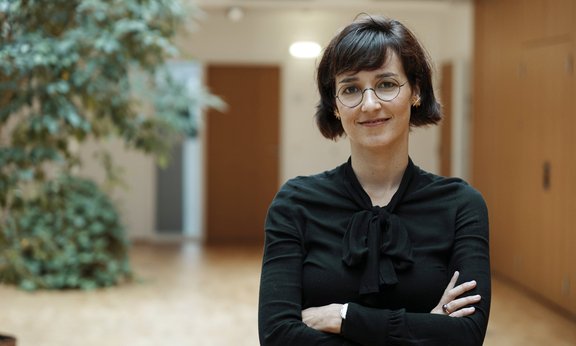For her research at the intersection of physics, computer sciences and artificial intelligence, theoretical physicist Gemma De las Cuevas will receive the START Prize of the Austrian Science Fund (FWF), which is endowed with up to 1.2 million Euros. Sciences are full of systems that produce a surprising complexity on the basis of a few rules. De las Cuevas wants to trace this ability by comparing the phenomenon of universality in different sciences. A system becomes universal when it is able to explore the entire complexity in its field. And even very simple systems with simple rules can be universal. "We see this in physics, in computer science and in artificial intelligence, where their respective concepts of universality have many similarities," explains Gemma De las Cuevas. De las Cuevas now wants to formalize these similarities and thus interlink these fields of knowledge. "The START prize gives me a great opportunity. I am grateful, happy and excited to have this chance," the physicist says excitedly.
Universal systems
The main goal of her research project “Universal spin models as Turing machines and neural networks” is to discover the relationship between universal spin models and universal Turing machines as well as between universal spin models and universality in neural networks and to explore their implications. This project will put classical spin hamiltonians, machines and neural networks on the same footing, by establishing rigorous connections between them and their concepts of universality. This will lead to a cross-fertilisation of ideas, proofs, efficiency results, and limitation results between these hitherto rather disconnected disciplines.
On the person
Gemma De las Cuevas studied physics at the Autonomous University of Barcelona and joined Hans Briegel's group at the University of Innsbruck for doctoral studies in 2007. After her promotion in 2011 she went to the Max Planck Institute of Quantum Optics in Garching near Munich for five years. In 2016 De las Cuevas returned to Innsbruck as an Elise Richter FWF scholarship recipient. At the same time, she was a Visiting Fellow at the Perimeter Institute in Waterloo, Canada. Since 2018 she is assistant professor at the Department of Theoretical Physics at the University of Innsbruck.

